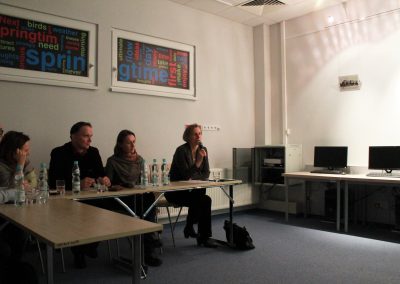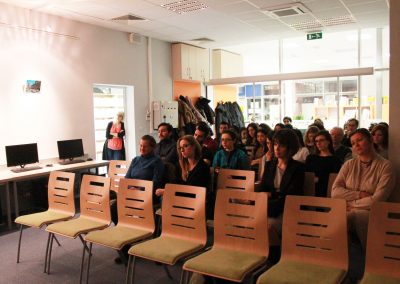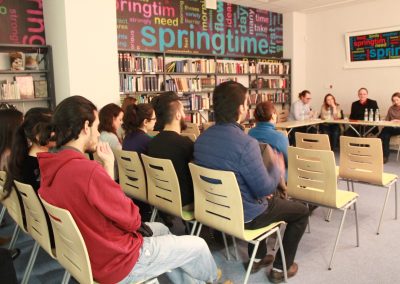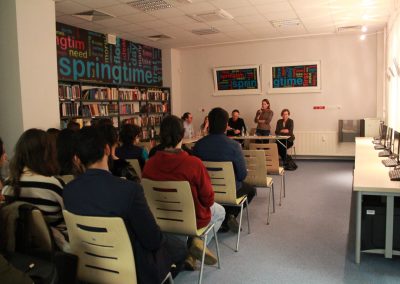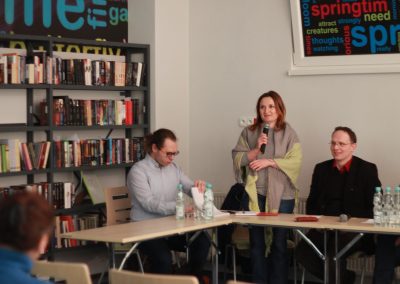On Wednesday we met in the Municipal Library Fil. 4 to participate in the debate entitled Gender ideology(ies): Man and woman – different by nature, inequal by society? We tried to find the answer to this question with our four guests: sociologists Borys Cymbrowski and Anna Czerner, philologist Katarzyna Molek-Kozakowska and biologist Elżbieta Pogoda.
We were aware that for most people the term gender is unfamiliar or even unfriendly, especially when someone is not a philologist or a social researcher, so we started with the basic questions: what gender is, how it exists in our respective fields of studies, and if there exists gender ideology. We can say that gender in general is about social consequences of being men, women or the others, because in the opinion of Elżbieta Pogoda even from a biological point of view there are more than only two sexes. And there is no evidence that one sex has an advantage over another.
In Polish media we encounter some false beliefs about the meaning of the word “gender”. But as Borys Cymbrowski mentioned it is a problem of confusion of nature with culture, because in the Polish language we have only one word (płeć) for gender and for sex. So some commentators confuse biological meaning with the cultural one. They accuse gender scholars of promoting a dangerous ideology which tries to convince people to choose their sex. As Anna Czerner said, the truth is that in the social sciences gender was a neutral category to analyse the relations between people in society, but unfortunately some institutions and politicians took one of the least popular topics in gender studies and used it as a basis to create and apply gender ideology as a political tool.
After that we focused mostly on language aspects within gender issues. Katarzyna Molek-Kozakowska indicated that for her it was easier to introduce herself in English than in Polish, because in Polish most names of academic professions have only a masculine gender, or even if it has a female gender, masculine forms sound more serious and more prestigious. But language is not a constant phenomenon – it is changing all the time. Twenty years ago we considered some female forms of words as strange, but today we take them for granted. We concluded that it is important to include more women-related forms to language, and it is one of the main catalysts of social changes in the public sphere.
We are really glad we could discuss it with you and with the citizens of Opole. We would like to thank you all for your presence and participation, and we hope to see you soon during another discussion. The aim of the whole debate was to clarify a little the problem of gender, but two hours is a short time when you are discussing such an important and complicated topic – so we treat this meeting only as a start. The debate is still open.
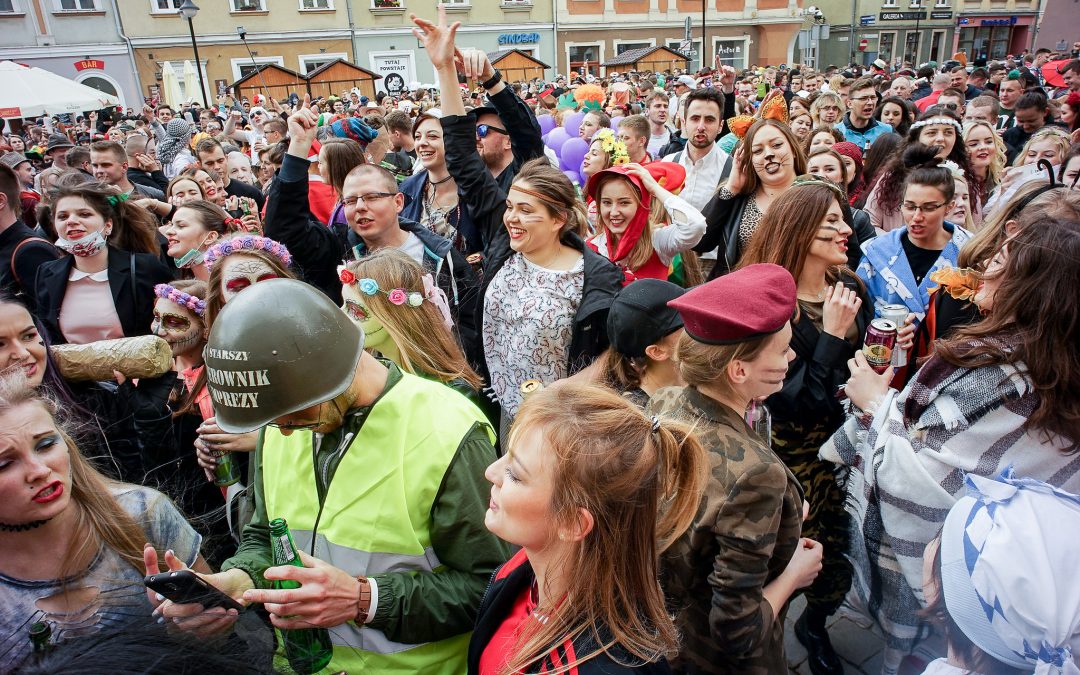
Piastonalia
21-27 May May is the month of Student Festivals in Poland. 7 days of concerts, and other interesting events begin on 21 May. See below what kind of attractions await us next week. Monday (21.05, Opole Technical University) We begin the festival at 3 pm with the...
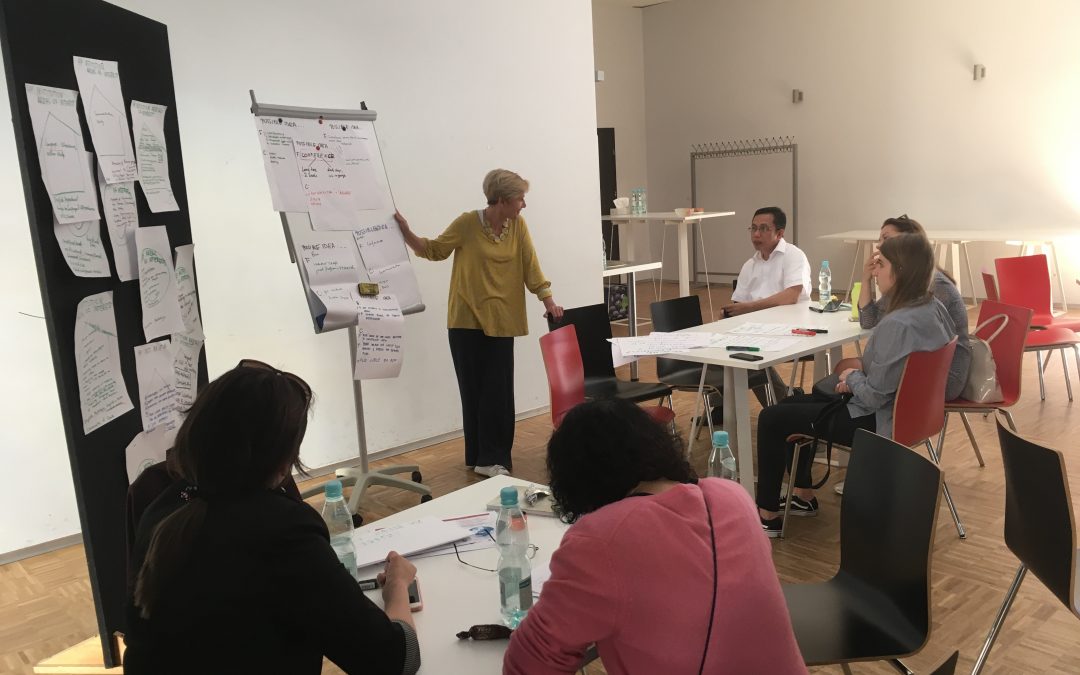
Central European International Week Follow-up
Follow-up The first Central European International Week was a success Just recently our University was a host of the Central European International Week. During the week we have been visited by our colleagues and partners from universities in Japan, Taiwan, China,...

Palaeobiology at UO with fun
Palaeobiology is a unique programme at our Univeristy. See for yourself Palaeobiology is a special programme created on the basis on the study of Biology. We meet every three weeks for 4 days and during one of our prior meetings we had a special event. One of our...
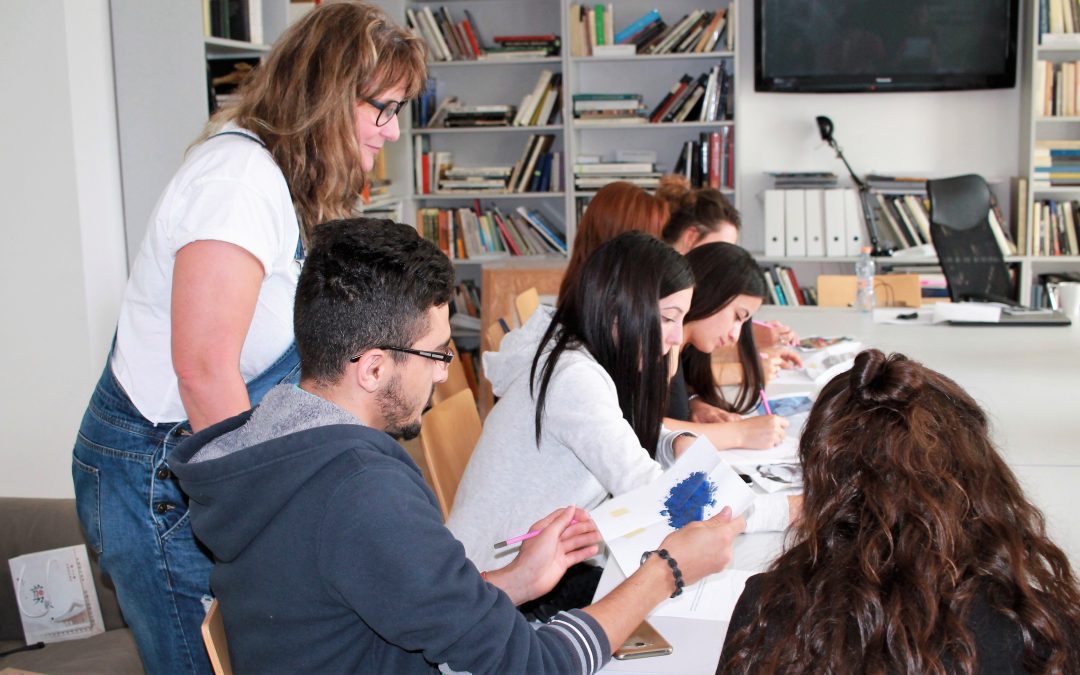
Winter Semester 2018/2019 Variable Course Registration
Dear students, This Monday, the 7th of May, at 8 a.m., a registration for the winter semester variable course will open. As usual, we advise you to go to USOSweb and look through the courses in advance, because you will have to fish them out from the list where...
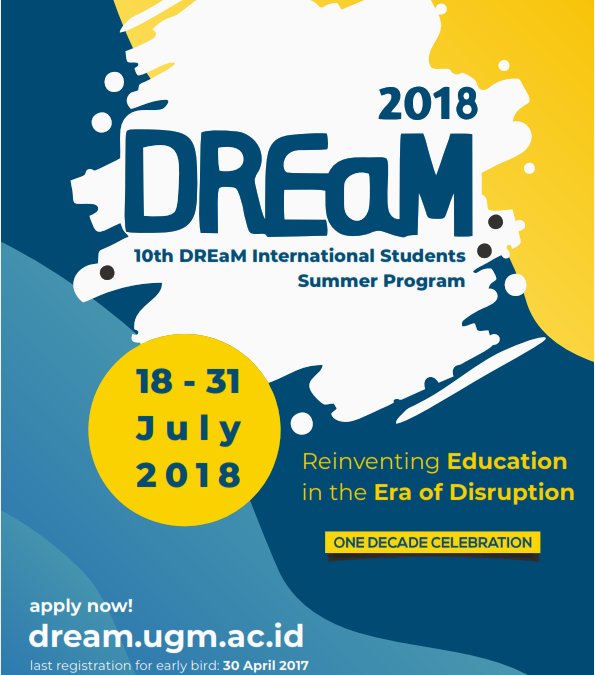
International Summer Programme in Indonesia
18 - 31 July, 2018 Universitas Gadjah Mada, Yogyakarta, Indonesia Reinventing Education in the Era of Disruption The 10th UGM DREaM International Students Summer Programme Dream is a programme organised by the Office of International Affairs at the Universitas Gadjah...
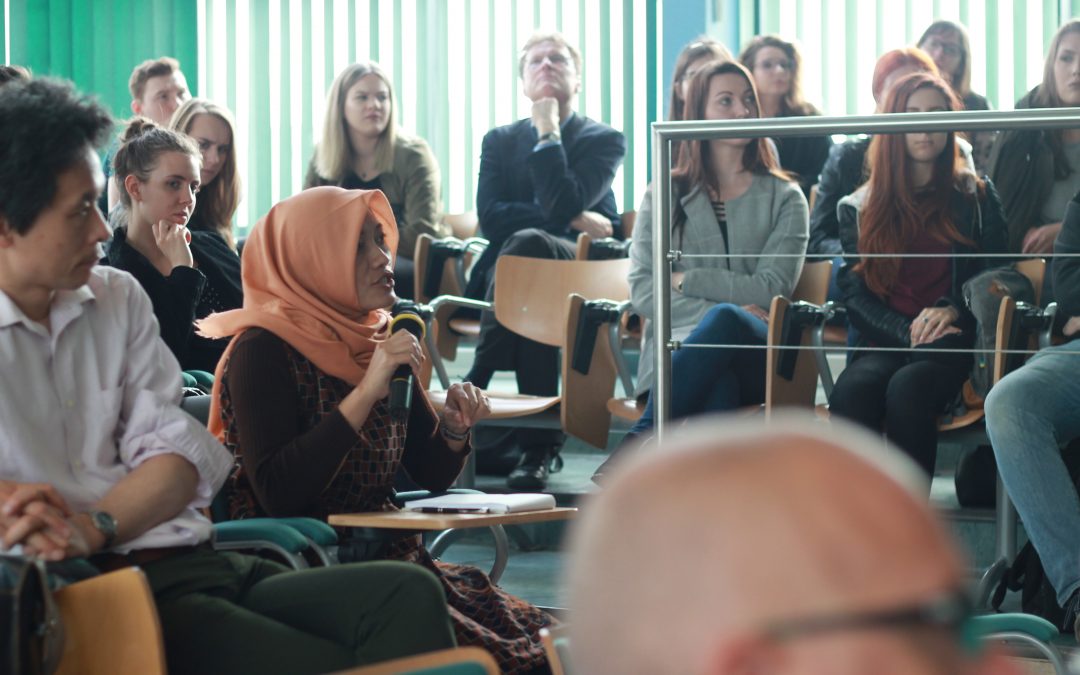
International Week – Conference
Interdisciplinarity and Transdisciplinarity - Science for Society and Human Beings Interdisciplinarity and Transdisciplinarity - Science for Society and Human Beings The conference “Interdisciplinarity and Transdisciplinarity - Science for Society and Human Beings”...
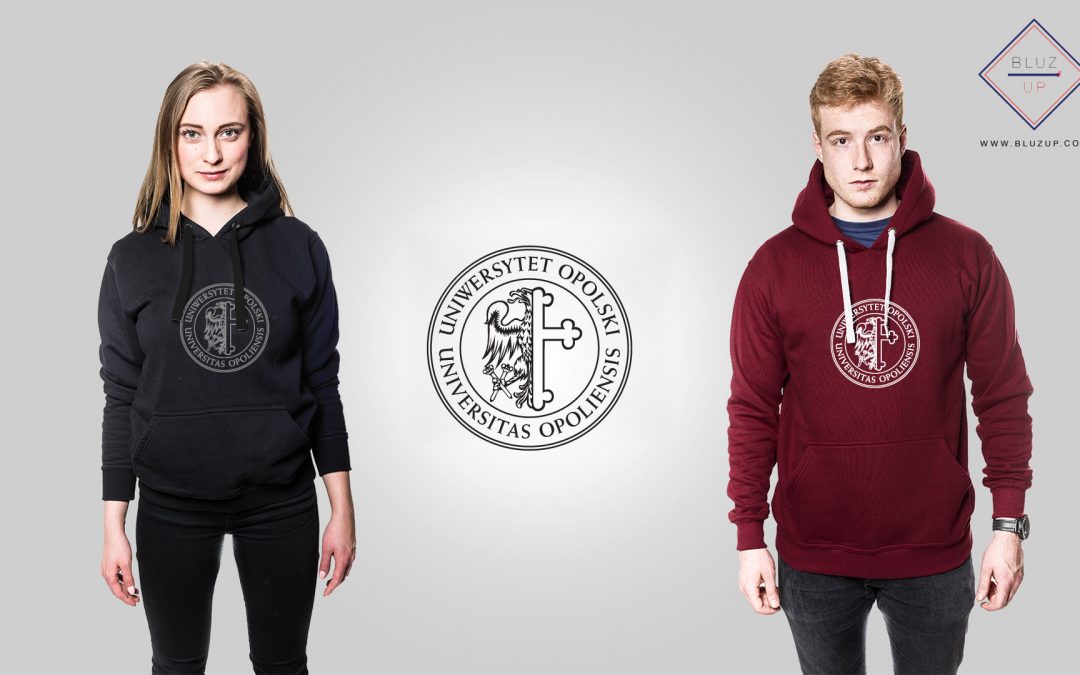
UO Hoodies
UO Hoodies and Sweatshirts College sweatshirts and hoodies were always popular among students. Now, thanks to our colleagues from the Academic Career Centre, our students can enjoy them too! About The offer includes three models of sweatshirts to choose from: a...
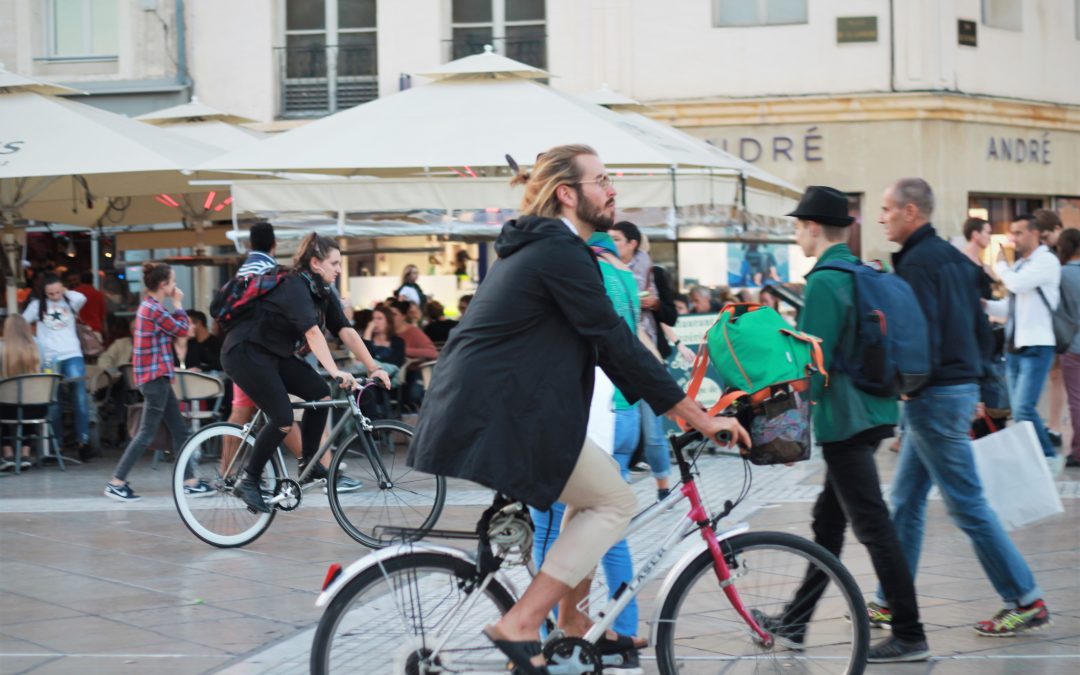
Koło UO
What is Koło UO? As you might already know, at the University of Opole there functions the Academic Career Centre (ACK). Our colleagues from the Centre have recently began a project called Koło UO. Within the framework of the programme they organised a collection of...

Easter in Poland
Easter, along with Christmas, is one of the most important holidays in Poland. This time of the year Polish citizens spend with their families and usually visit their hometowns. The University authorities have decided to grant students 6 days free of classes. Easter...

Try Project
easter fair in bierkowice Poland is a country with numerous traditions, especially when it comes to holidays. As Polish citizens are mostly of the Catholic faith, this religion’s practices had a lot of influence on the customs in Poland throughout the years. One of...
